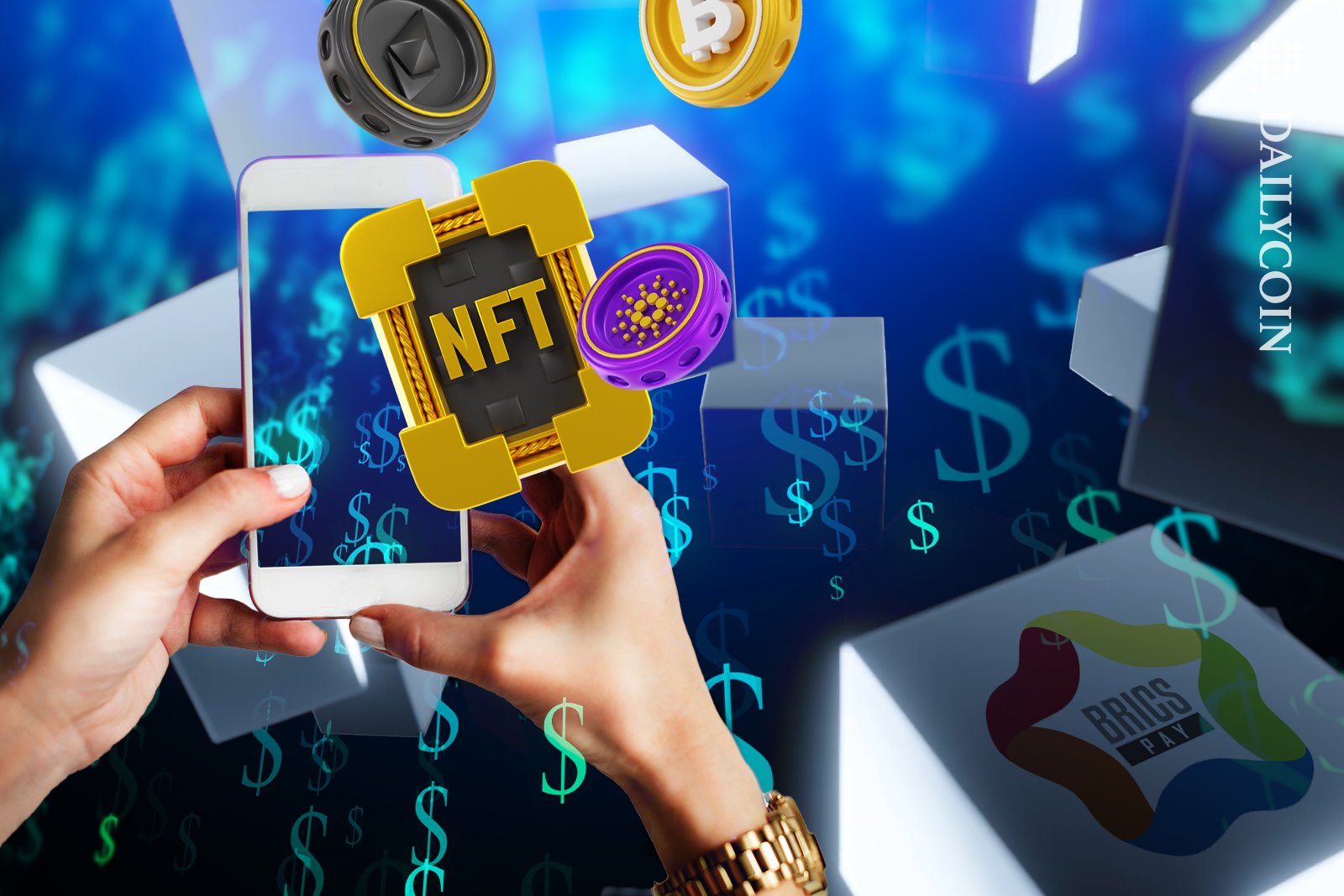
- BRICS plans to launch a blockchain-based payment system.
- This solution targets all levels of society, including everyday people.
- The payment system is an evolution of the Contingent Reserve Arrangement.
The BRICS nations are actively working towards consolidating emerging economies to counterbalance developed Western powers’ political and financial dominance. As part of an accelerated effort to foster deeper ties and enhance economic cooperation, BRICS has unveiled plans for a blockchain-based payment system to further reduce reliance on the US dollar.
BRICS Nations Step Up Blockchain Game
The BRICS nations are developing a blockchain-based payment system to reduce member nations’ use of the dollar, according to the Russian news agency TASS. Kremlin aide Yury Ushakov stated that the payment system will use digital blockchain technologies to enable “cost-effective and free of politics” payments for all, including governments and “common people.”
Sponsored
According to Ushakov, the blockchain-based payment network aims to increase the role of BRICS nations in the global financial system by boosting settlements in national currencies and strengthening correspondent banking networks. This would secure more international transactions outside the dollar’s sphere of influence.
Details of the payment system, such as whether BRICS will develop its own blockchain or use an existing platform, were not disclosed by the Kremlin.
The blockchain-based platform represents a natural evolution of the BRICS Contingent Reserve Arrangement (CRA), which established a framework for providing liquidity and support to facilitate the balance of payments between member nations.
What is the Contingent Reserve Arrangement?
The CRA was established in 2014 during the sixth BRICS summit in Fortaleza, Brazil, setting forth an agreement to facilitate the balance of payments between member nations and to provide a buffer against global liquidity pressures.
Sponsored
Member nations committed a collective $100 billion to the CRA, with contributions ranging from $41 billion by China to $5 billion from South Africa.
While aiming to strengthen the global financial safety net, the CRA is designed to reduce dependence on US dollar-denominated assets and arrangements like the IMF, which Western powers influence.
On the Flipside
- Egypt, Ethiopia, Iran, Saudi Arabia, and the United Arab Emirates joined BRICS in January 2024.
- While BRICS was traditionally an alliance of emerging market countries, UAE is a high-income, developed country.
- The topic of a single common BRICS currency is being discussed between member nations.
Why This Matters
The BRICS push for a blockchain-based payment system is about more than new financial plumbing. It serves as a challenge to the prevailing US hegemony established in the aftermath of World War II. In light of the growing awareness of the fallacy of fiat money, the ascent of BRICS is a deliberate reaction to the collective yearning for change.
Read about Russia exploring cryptocurrency for international settlements here:
Russia Close to Adopting Crypto in International Trade
Find out more on the speculation around Qatar secretly stacking Bitcoin here:
